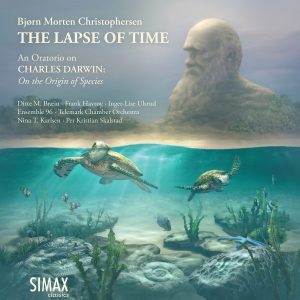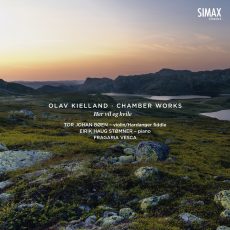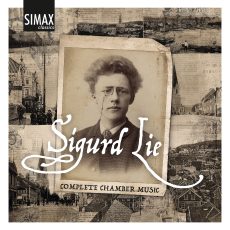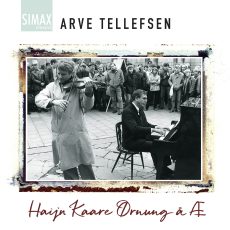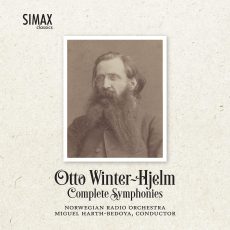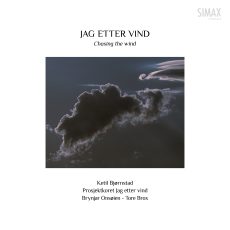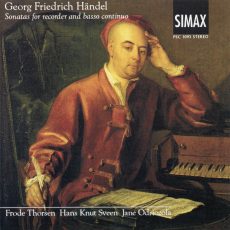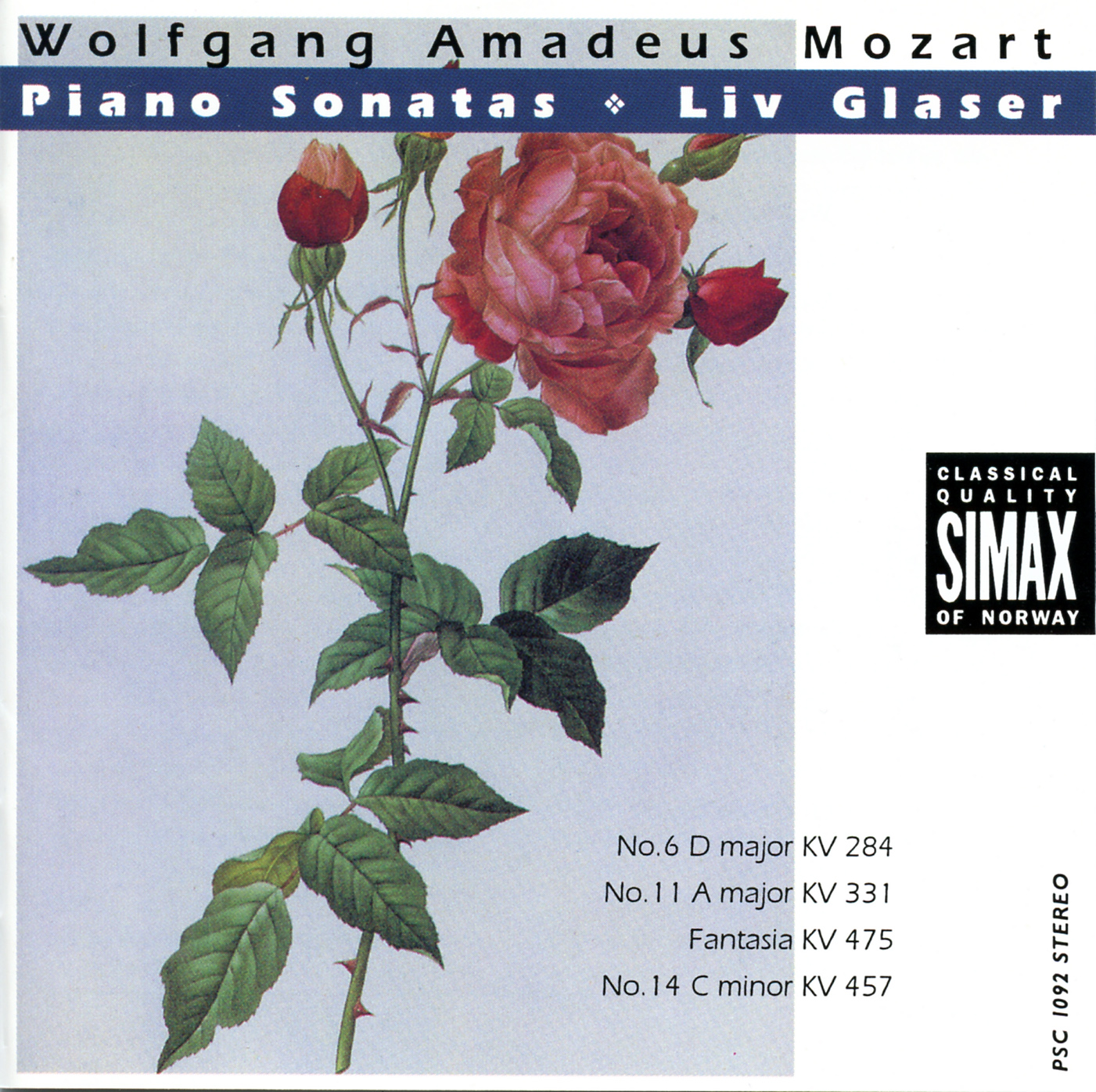Indeed it is surprising to find a vein of poetry running through a dissertation of natural science. But that is in fact the case with Darwin’s iconic book, which at the same time is one of the most ground-breaking scientific works ever written. The book is truly worth reading for any layman. That one cannot really say about Einstein’s theory of relativity or all the articles pouring out of the various universities today. Christophersen has set music to excerpts from The Origin of Species after carefully adapting them into singable phrases. Nevertheless, nothing is added, we hear only Darwin’s own words in this oratorio.
The Lapse of Time is a large-scale musical drama in which two soloists, choir and orchestra move through slow-building waves from the barely audible to magnificent climaxes. The work is full of life: we really feel the crawl and crabbing within the orchestra while the singers chant an astonishingly poetic text, taking its origin into consideration. Profound, playful, dramatic and humorous passages are woven together in a large organic musical course. The Lapse of Time also has a sacred flavor to it by involving both the church organ and mimics of plainchant. Through this work, Christophersen hopes to create a basis for shared wonder and excitement between natural science and religion.
Life on earth has developed through a time span far beyond our own to emerge as overwhelmingly rich and complex as we see it today. This idea was a completely new realization in Darwin’s time, and it met strong opposition especially from the church. And it is still controversial in many circles today. After all, we can’t easily grasp billions of years in our consciousness. So how can we experience that minor changes from one generation to the next can result in such a diversity? Perhaps through music? For music is the very form of art suitable for experiencing time in various ways. In this work, for instance, the orchestra and choir initiate a dialogue with their own past, that is, with parts of the work we have already heard. Music from our memory emerges into our presence and affects the future of our “now”, so to speak.
The Lapse of Time was premiered in Kristiansund and Ålesund in the west coast of Norway in 2013. This recording, however, was made in February 2022 by Ditte Marie Bræin, Frank Havrøy, Inger-Lise Ulsrud, Ensemble 96, Telemark Chamber Orchestra and conductors Nina T. Karlsen and Per Kristian Skalstad in Frogner Church in Oslo in a collaboration with Darwin Day at the University of Oslo. At that time the Omicron virus still swept through Norway and made the preparations truly demanding. In return, it was a most longed for and magnificent concert experience for the Oslo audience.
The Norwegian composer B. Morten Christophersen (1976-) has written music for orchestra, choir, chamber ensembles as well as film music and stage music. He has also written more than 150 arrangements, most of them for orchestra. Christophersen has collaborated with Oslo Philharmonic Orchestra, The Norwegian Opera, Bergen Philharmonic Orchestra, Norwegian Radio Orchestra, Kristiansand Symphony Orchestra, Royal Norwegian Navy Band, Ålesund Chamber Music Festival, Schola Cantorum (Oslo), Ensemble 96 as well as Norwegian Broadcasting Coorperation (NRK) and others.
Christophersen is Senior Lecturer at the Department of Musicology, University of Oslo and has been teaching composition, arranging, harmony, orchestration and counterpoint there since 2003. In 2016 he completed his PhD on the Norwegian composer Johan Svendsen’s sketches and music theory exercises.









